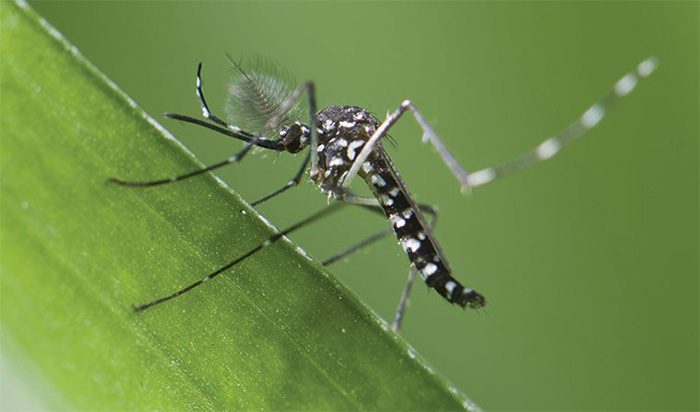A Recent Study Published in Cell Highlights the Risks of Mosquitoes Even During Dengue Fever.
Dengue fever can spread when a “healthy” mosquito bites an infected person, subsequently transmitting the virus to others. Researchers from the United States and China have uncovered how mosquitoes facilitate this process, leading to the rapid spread of dengue fever, malaria, and Zika.

Aedes Mosquito, the Vector for Dengue Fever – (Image: HEALTH LINE)
This research involved collaboration between the University of Connecticut (USA), Tsinghua University, the Institute of Infectious Diseases, Ruili Hospital of Traditional Medicine, the Tropical and Subtropical Animal Virus Laboratory in Yunnan, and the Chinese Center for Disease Control and Prevention. They discovered significant changes in individuals infected with these diseases.
According to SciTech Daily, researchers allowed a group of mosquitoes to choose between infected and healthy laboratory mice, observing a peculiar “attraction” to the sick mice.
They then analyzed the odor molecules on the skin of the infected mice, identifying several molecules that were more prevalent on the diseased animals and tested them individually.
The results “pinpointed” acetophenone, a compound that emits a scent particularly attractive to… mosquitoes. Consequently, mosquitoes are drawn to bite individuals suffering from dengue fever.
The Aedes mosquito, responsible for dengue fever, is often referred to as the “house mosquito”, as it prefers to hide in human dwellings. This increases the likelihood of it spreading the virus to family members, classmates, or colleagues who share the same room or house with the infected person.
An interesting finding was that when the authors provided the sick mice with increased vitamin A, this vitamin stimulated certain bodily processes that enhanced the production of antimicrobial peptides in the skin, helping to suppress the attractive odor for mosquitoes.
Subsequent experiments indicated that Zika and malaria could also trigger similar responses. The authors are continuing with a larger study, examining the relationship between each individual’s microbiome and this transmission capability. However, the initial results are sufficient to suggest that individuals should take precautions against mosquito bites even when infected with dengue fever.



















































